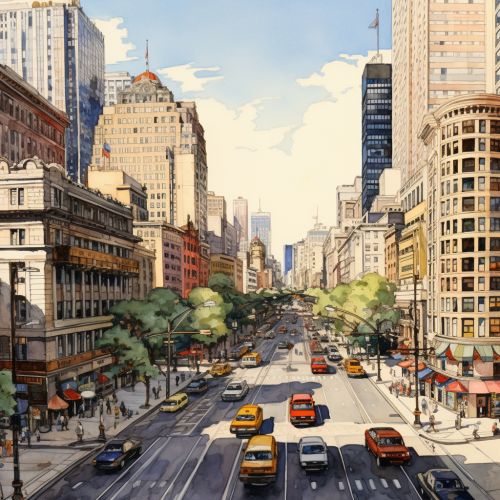Urban Sociology
Introduction
Urban sociology is a branch of sociology that studies social structures and processes in the urban environment. It is a multidisciplinary field that incorporates elements of economics, political science, geography, and history to understand the complex dynamics of urban life. The field is primarily concerned with the ways in which urban environments influence social behavior and vice versa.


History
Urban sociology emerged as a distinct discipline in the late 19th and early 20th centuries, in response to the rapid urbanization and industrialization of Western societies. Early urban sociologists were primarily concerned with understanding the social problems associated with urbanization, such as poverty, crime, and social dislocation. The Chicago School was one of the first institutions to develop a comprehensive approach to urban sociology, using the city of Chicago as a laboratory for their studies.
Theoretical Perspectives
There are several key theoretical perspectives in urban sociology, each with its own understanding of the nature of urban life and the social processes that shape it.
Structural Functionalism
Structural functionalism views the city as a complex system of interdependent parts, each with its own function. This perspective emphasizes the importance of social order and stability, and sees urban problems as disruptions to this order.
Conflict Theory
Conflict theory, on the other hand, focuses on the conflicts and power struggles that arise in urban environments. This perspective sees urban problems as the result of structural inequalities and power imbalances.
Symbolic Interactionism
Symbolic interactionism focuses on the ways in which individuals and groups interact and communicate in urban environments. This perspective emphasizes the importance of social interaction and the construction of meaning in shaping urban life.
Urbanization and Social Change
Urbanization is a key area of study in urban sociology. Urbanization refers to the process by which populations move from rural to urban areas, leading to the growth of cities. This process has profound social, economic, and environmental impacts, and is a major driver of social change.
Urban Social Problems
Urban sociology also focuses on the social problems that are associated with urban life. These include issues such as poverty, homelessness, crime, and social isolation. Urban sociologists seek to understand the causes of these problems and to develop strategies for addressing them.
Urban Planning and Policy
Urban sociology also has important implications for urban planning and policy. By understanding the social dynamics of urban life, urban sociologists can help to inform the development of policies and strategies that promote social equity, sustainability, and quality of life in urban areas.
